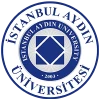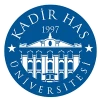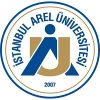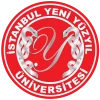If you reflect on previous civilizations, you will be astonished at how each nation has left a unique architectural legacy that defines itself, as well as its culture and identity.
Years have passed, and nations have moved on, but these monuments speak for them and say a lot about their different aspects. The difference in the architectural characteristics of each civilization was the beginning that illustrated the architectural dimensions established by these civilizations in many countries, including the Pharaonic, Babylonian, and Ottoman civilizations.
Today, it has evolved into one of the most important fields of engineering, serving as the foundation for all architectural arts, from museums to skyscrapers, palaces, mosques, and towers, many of which have become tourist destinations across the world.
This article is your guide if you are thinking about studying architectural engineering in Turkey.
Introducing Architectural Engineering
It is a science that incorporates art, design, and construction technology, in which architecture is applied and managed to suit both practical and aesthetic needs, and thus serves both practical and artistic objectives. Planning, design, and production are often combined, and architectural creations are viewed as cultural icons and artworks that convey identity and culture. Historical civilizations have survived across time through their marvelous architecture that has become precious monuments.
Essential Skills Required to Study Architectural Engineering in Turkey
An engineering faculty is a place where countless innovators gather. which means the competition to stand out is high. To bring out your creativity and have it recognized, as well as progress through school subjects, projects, and training, you must have essential abilities and skills that qualify you to study architectural engineering. Some of which are:
-
Strong Mathematical Skills: On which the whole concept of architectural engineering is based. Students of architectural engineering require a strong understanding of numerical principles, especially in algebra and engineering science.
-
A Good Sense of Creativity: Since architectural engineers are required to think outside the box often, they need to have a creative imagination as well as the ability to inspire new designs and revive old ones.
-
Designing Skills: You must understand design principles. Designing involves planning, drafting, sketching, and conceptualizing. Whether you are designing a school or a grocery shop, you'll need to follow a design process and make the project appeal to your client's satisfaction and meet their requirements.
-
Communication Skills: Being an engineer requires communicating and interacting with the different groups responsible for building the project.
-
Legal Knowledge: A thorough knowledge of the regulations and laws of building construction to avoid making legal violations.
-
Teamwork Skills: Essential for maximum efficiency with finishing projects.
-
Art Skills and Drawing Skills: So that you can transform your ideas on paper before you start applying them.
-
Problem-Solving Skills: Because engineers work is prone to many problems during the creation of projects, so they must quickly solve them.
-
Engineering Skills: To ensure the design's viability, practicability, and application on the field.
-
Leadership Skills: The architect is the first administrator at the construction site and the primary reference for many workers.
-
Attention To Detail: Because the most minute details in a project make a difference.
-
Computer Skills: The engineer must use different design software to create plans.
Reasons to Choose Studying Architectural Engineering in Turkey
Turkey is a popular destination for students from all over the world for a variety of reasons. It has many educational benefits and an atmosphere that helps kids during their school years and adds to their practical and academic experiences. In addition to providing several local and international benefits that include:
-
Easy University Admission:
Because most Turkish universities use a simple and straightforward system to admit students, you can easily get admission and start the major you want to study by contacting the university directly or one of our educational advisers here at Turkey Campus. They can point you in the right direction, make it easier for you to sign up, and make sure you get admission to several Turkish universities.
-
Systematic and Scientific Competence:
Each year, Turkey welcomes thousands of international students from a wide range of nationalities. The number of universities in Turkey has reached 200, which includes 138 public universities and 62 private universities. It ranks second in terms of access to higher education, with a schooling rate of 94.2%. Turkey is implementing the Bologna Process for higher education in Europe in a unique and continuous manner, and it has received 5 out of 5 points in the evaluation of the Bologna Process.
The interest and continuous effort of Turkish universities to equip their laboratories and research centers with the most advanced global scientific research technology, and exchange experiences between local and international academic staff are just a few of the many factors that have contributed to the rise in the international status of Turkey's higher education institutions. All of this has resulted in Turkey's rapid rise to the top of the global education rankings, as well as the incorporation of English into its curriculum alongside Turkish.
-
Affordable Living Expenses:
Considering the financial situation of a student whose sole source of income may be those provided to them by their parents from abroad, normal life in Turkey provides students with special privileges that help to make life easy, flexible, and less expensive. Some of the most important facilities are university housing, university admissions, student residency, a transportation card, and a bank account without additional fees.
-
Practical Experience:
Providing practical and strong training to college students both inside and outside the university in collaboration with major Turkish companies in various fields, greatly contributes to the balance of students' experiences and increases the chances of getting a job, competing in the job market, and finding distinguished jobs.
-
The Ability to Study in English:
A large number of international students in Turkey has made several languages valid for teaching at universities, especially English, a global language that brings together many students from different places across the world as a second language or as a mother tongue.
Conditions to Study Architectural Engineering in Turkey:
|
Public Universities |
Private Universities |
|
|
Branches of Architectural Engineering
When we talk about architectural branches, we talk about different fields of study that are related to architecture and how it works in some way. I will explain the architecture branches, which are classified as follows:
-
Urban Planning:
One of the fields that branched out of architecture, it can be studied in the departments of these faculties: territorial organization and urban planning, which lead to a degree in urban planning. It is worth noting that the city planner cannot plan and design data by himself, and his focus is limited to the city.
-
Landscape Design:
This field focuses on the design of gardens and parks, among other things. The student studies at a university specializing in the subject, after which he earns a certificate as a landscape designer, and then he can pursue his profession by working with architecture firms or just being self-employed.
-
Interior Design:
It is an architectural specialty that focuses on the aesthetic part of the interior designer's obligation in the choice of building materials, light areas, and water drainage systems. He can also relocate walls and give instructions on how to make staircases, as well as work in and contribute to construction and building.
-
Interior Decoration:
While it is not considered a specialty in architecture, its significance lies in the aesthetic it provides for construction, which has been linked to but is not one of the branches of architecture. An interior designer is a specialist who begins his work once the construction is complete; he oversees the colors of lighting, wall paint, furniture, and curtains, among other things.
-
History of Architecture:
Students can get a degree in the history of architecture and become architectural historians by studying history or art for five years and getting a degree in the history of architecture. This specialty provides job opportunities at museums and private research centers in areas of work in history, in general, and in the history of architecture.
The Study Plan for Studying Architectural Engineering
In the engineering faculty, there are required classes that are spread out over the course of the school year. This means that the student must meet the minimum pass rate.
|
Program Curriculum |
|
|
Architectural Design |
Architectural Drawing |
|
Construction Management |
Architectural Engineering |
|
Systems Engineering |
Buildings Management |
|
Construction Equipment and Methods |
History Of Architecture |
|
Art Of Architecture |
Architectural Acoustics |
|
Electrical Architecture |
Archaeological Sites Rehabilitation and Conservation |
|
History Of Architecture and Art |
Structural Analysis |
|
Cultural History |
Computer-aided Architectural Design (CAAD) |
|
Theory Of Architectural Lighting Design |
Heritage Protection |
|
Design Techniques and Structure |
Construction Materials |
|
Sense And Sensibility in Architecture |
Building Regulations |
|
Lighting Design |
Construction Resistance |
|
Difference Between Theory and History of Architecture |
Difference Between Art History and Architecture History |
Top 10 Turkish Public Universities in 2022 for Studying Architecture in Turkey
Because of their progressive and modern academic programs, Turkish universities are known both in Turkey and around the world for providing high-quality education. Below are the names of Turkey's top universities, along with the national and international rankings:
|
University |
National Ranking |
International Ranking |
|
Middle East Technical University |
1 |
473 |
|
Istanbul Technical University |
2 |
604 |
|
Bosphorus University |
3 |
623 |
|
Hacettepe University |
4 |
641 |
|
5 |
738 |
|
|
6 |
725 |
|
|
Gazi University |
7 |
941 |
|
Dokuz.Eylul University |
8 |
1033 |
|
Marmara University |
9 |
1041 |
|
Ataturk University |
10 |
1091 |
Top 10 Turkish Private Universities in 2022 for Studying Architecture in Turkey:
|
University |
National Ranking |
International Ranking |
|
Bilkent University |
7 |
821 |
|
Sabanci University |
15 |
1185 |
|
17 |
1243 |
|
|
27 |
1565 |
|
|
Aydin University |
30 |
1620 |
|
Ozyegin University |
35 |
1734 |
|
Baskent University |
41 |
1999 |
|
Yedi Tepe University |
50 |
2201 |
|
54 |
2261 |
|
|
Atilim University |
57 |
2305 |
Top Universities for Architectural Engineering in Turkey:
|
University |
Language Of Study |
Type |
|
Bahcesehir University |
English |
Private |
|
Ozyegin University |
English- Turkish |
|
|
Medipol University |
English- Turkish |
|
|
English – Turkish |
||
|
Mimar Sinan Fine Art University |
Turkish |
Public |
|
Istanbul Technical University |
English |
|
|
Middle East Technical University |
English |
|
|
Yıldız Technical University |
English- Turkish |
|
|
Abdullah Gül University |
English |
|
|
Ankara Yıldırım Beyazıt University |
English |
|
|
Gaziantep University |
English |
|
|
Gebze Technical University |
English |
|
|
İzmir Democracy University |
English |
|
|
İzmir Institute Of Technology |
English |
|
|
Mersin University |
English |
|
|
Trakia University |
English |
The Language of Studying Architectural Engineering in Turkey
You don't have to worry about not being able to communicate if you want to study civil engineering in Turkey. There are many public and private universities in Turkey where English is used as the language of instruction, so you can choose where you would like to study. Start a preparatory year at the university before enrolling in a major if you want to improve your Turkish language skills. If you already have a Turkish language certificate (TÖMER), you can save time by submitting it directly to the university.
Number of Years Required to Study an Architectural Engineering Degree in Turkey
The number of years of education required varies according to the level of study. A bachelor's in architecture in Turkey takes 4–5 years and consists of 8 semesters. In the first semester, the student learns the world of design in a simplified approach, starting with architectural hand drawing, mathematics only relevant to architecture, and computer-aided drawing, then progressively delving deeper into architectural fields. A master's degree can be earned in two or three years or four to six semesters, depending on the area of study and whether a thesis is required, while a doctorate degree requires 4-5 years. Below is a list of Turkey's most prominent universities for studying a master's degree:
|
University |
Program Language |
Program Type |
|
Altınbaş University |
English |
Thesis |
|
Istanbul Aydın University |
Turkish |
|
|
Bahcesehir University |
English- Turkish |
Thesis- No Thesis |
|
Istanbul Okan University |
English- Turkish |
|
|
Istanbul Gelisim University |
Turkish |
|
|
Haliç University |
Turkish |
Tuition Fees of Studying Architectural Engineering in Turkey
The tuition fees for studying architecture in Turkey vary for each degree, with a bachelor's degree costing between 2000 and 5000 US$ a year. In Turkey, the tuition fees for pursuing a master's degree in an engineering field begin at 3000 US$, and the tuition fee for a doctorate degree starts at 3500 US$.
The Engineering Projects and Field Training
Engineering projects are one of the Faculty of Architecture's unique characteristics. A student in architecture must finish eight projects during the four years of the bachelor's degree; each semester requires a project to be completed.
Although the idea of projects is one of the things that worries students, it doesn’t deserve all that anxiety or fear. The projects start simple and progress to become more challenging, but as a university student, you will have evolved through your skills and gained experience; what was a cause for concern in the first semester will be a reason for your creativity in the following semesters. For example, in the first year, the projects are hand-drawn. In the second year, they are done using AutoCAD, and in the third year, through 3D Max and Revit. The project in the last year is the graduation project, which, to be completed, requires all the programs and abilities you learned during the previous years.
When it comes to field training, it can be divided into mandatory training and voluntary training. Training provides students with the opportunity to get practical experience, put theoretical subjects into practice, and prepare them for the labor market. The mandatory training is done through the school years under the supervision of the university, with collaboration between the university and the engineering offices and companies. The student has to put in the required number of training hours and do the tasks given to them, which may be free or for a small amount. Voluntary training is self-motivated training in which students seek to improve their practical experiences and skills by putting lectures into practice. It's important to note that the training takes place in offices and the engineering companies that work with them.
Fields of Work for Architectural Engineering
Architecture graduates can work in a variety of fields and choose the best one for them based on what they want, what they want to do, what is in demand, and what will help them learn more about architecture. Some of those fields are
-
Executive Engineer.
-
Project Manager Engineer.
-
Engineer Supervisor.
-
Construction Technology.
-
Architectural Drawing.
-
Interior Architecture.
-
Architecture.
-
Engineering Companies.
-
Consulting Institutions.
-
Private Office.
-
Construction Companies.
Duties and Responsibilities of an Architectural Engineer:
-
Design, analyze and make necessary adjustments to prototypes.
-
Constant visits to the workplace.
-
Finding solutions to architectural, building, and construction problems.
-
Familiarity with the mechanism of reading, understanding, and explaining complex documents related to architecture and art projects.
-
Having the ability to draw and prepare designs by hand and on a computer.
The pros of Studying Architectural Engineering in Turkey
-
The ability to own and manage a private project without having to work in a public job and manage your project in the way best suited to you.
-
Developing artistic and creative sense.
-
Acquiring critical and constructive thinking skills.
-
The existence of an engineers' union enhances the presence of engineers.
-
Obtaining a university degree from one of the most powerful majors worldwide.
-
Acquisition of teamwork skills.
-
Access to employment opportunities thanks to continuous development.
-
Earning a salary that is high and rewarding compared to other occupations.
-
The continuing need in the private sector to provide engineering jobs.
Characteristics of a Successful Architectural Engineer:
-
Time management and organizational skills.
-
A passion for arts and design.
-
The ability to think outside the box.
-
The desire to learn about diverse cultures.
-
Being detail-oriented.
Conclusion
Certainly, architecture is a unique field of study. This is due to how important it has been to societies and the development of civilizations throughout history. In addition to using art, technology, and engineering to find practical solutions to society's problems and needs, architects play a big role in coming up with new and creative ways for countries and nations to deal with the problems they face. Because architecture has always been an important part of great civilizations, and it still is.
Turkey Campus is happy to be your first step into the fascinating world of engineering. We offer all the educational and practical services you need and the best university discounts. Our knowledgeable and experienced educational advisors are ready to give you the help you need to get started in your education. Feel free to contact us on social media or visit our website to answer all your inquiries.




















